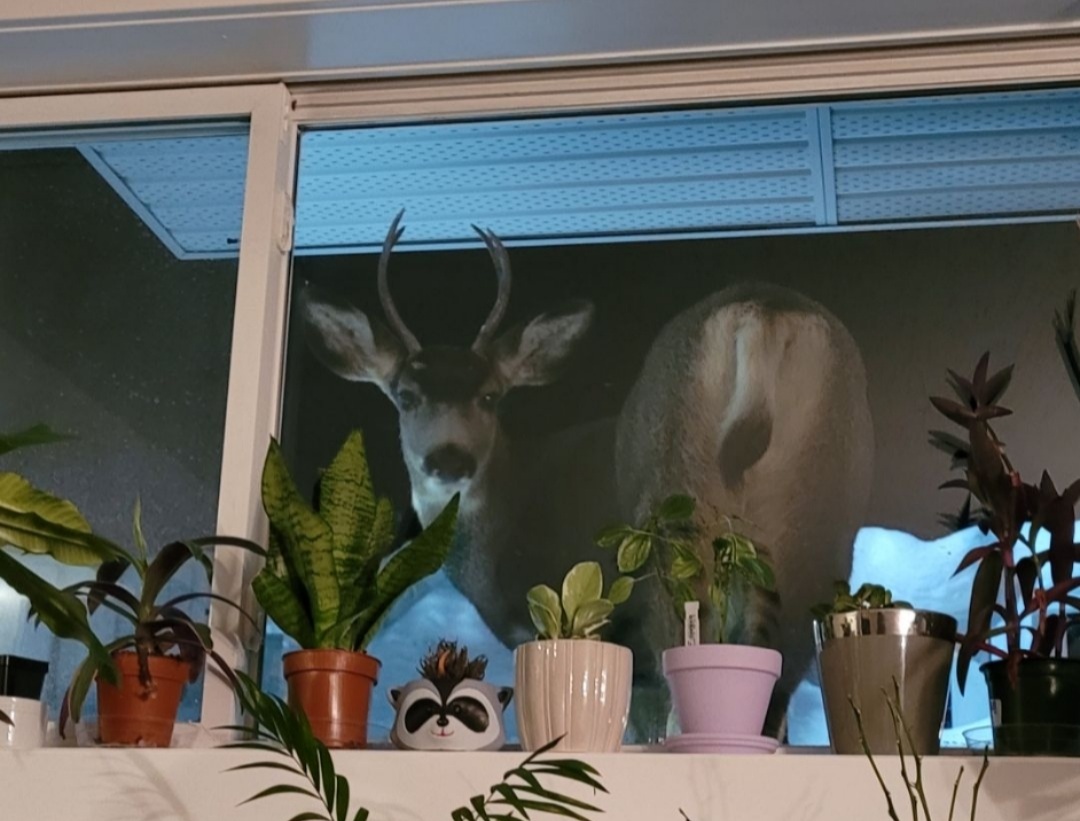It can be heartbreaking as a gardener to find your prized crops munched on by a wandering animal, so we spoke with local experts to find out how to keep your plants safe.
In the Kootenays, many communities are closer to nature than some urban cities.
“People are struggling with deer, for sure. That’s definitely a thing in Cranbrook and Kimberley right now, less so in the country, actually,” said Top Crop Garden Farm and Pet owner Shannon Fisher. “Skunks are a problem, and a lot of people have a problem with cats digging in their garden.”
According to WildSafeBC, other ungulate species, such as elk and moose, along with bears, foxes and raccoons can also be a nuisance to backyard veggie gardens.
Fruit trees are also particularly enticing to wandering animals.
“As the summer progresses and we start to see berries and fruit trees start to ripen, those are major attractants,” said Andrea Fletcher, WildSafeBC Elk Valley community coordinator.
“If you’re using those fruit trees as a food source, we’re definitely not saying you should get rid of it. But if you have them there as a decorative thing, or it’s becoming a hassle maintaining it, we have programs that we can recommend for removing your fruit tree and possibly replacing it with something else.”
If you want to keep animals from snacking on your garden, there are a few methods you can use, with varying degrees of efficacy and cost.
“For deer, putting up some fencing around your garden is super helpful,” said Fletcher. “In terms of keeping bears out of your yard, which is something we have been seeing this spring, take down things like bird feeders, remove garbage and keep it indoors until collection day.”
Fisher said a good deer-proof fence needs to be at least six feet high to prevent the animals from simply jumping over.
“I have seen people put up shorter fences and then string some wires above it, but generally, six feet is the magic number we need to get to keep them out of our garden,” said Fisher.
Fletcher said fencing with a curve on the top or an electric fence could also be considered.
A good fence can be quite costly, but both Fisher and Fletcher said it is the most effective way of protecting your plants.
Commercially available repellent is another option that may help, but Fisher said this is not always a sure-fire strategy and some can only be used for certain plants.
“There is a product called Bobbex that can be sprayed on ornamental plants, but it can’t be sprayed on anything you want to eat because it gets absorbed into the plant,” said Fisher. “I have heard people say the animals will eat it even with the Bobbex on it, but it is an option.”
Fisher has a few other recommendations for keeping your plants safe as well.
“There are motion-detecting sprinklers, and they work quite well. Something walks in front of it and it makes a dramatic spray and that scares them,” said Fisher. “I’ve had people who said they hung satchels of blood meal and Irish soap and things like that that helps deter deer.”
However, the animals may eventually earn to overcome strong smells.
“The key to success, I think, is to switch it up every once in a while. Deer are sort of habitual, so if you can make changes and put something there they don’t like, it sort of disrupts their path,” explained Fisher.
Burrowing animals, such as skunks, can present a different challenge to overcome.
“If you’re using chicken wire, you can bury it a little bit in the ground to keep the burrowing animals out,” said Fletcher.
Fisher also recommended laying a sheet of chicken wire under a layer of mulch to keep out digging animals.
If you want an all-natural approach, companion planting is a viable option. Companion planting is a method of growing plants that can be beneficial to one another in close proximity.
Some deer have sensitive taste and smell and will avoid certain plants altogether. This can include lavender, mint, oregano or other plants with strong smells, plants with fuzzy or unusually textured foliage, like squash and sage, or plants with thorns or spiky leaves, such as roses or certain holly species.
However, urban deer populations tend to be less picky than their wild counterparts.
“We have generations of deer being born in the city. We also have the environment. Last year was so hot and the surrounding forest dried up so drastically that the deer were looking for anything that had some kind of moisture in it,” said Fisher.
Battling wildlife for control of your own garden can seem like a daunting task, but it’s worth the initial investment to ensure you have a full harvest from your crops.




